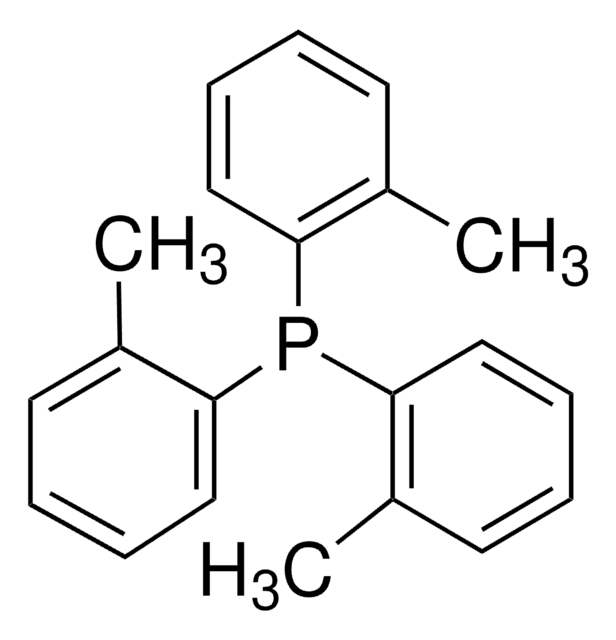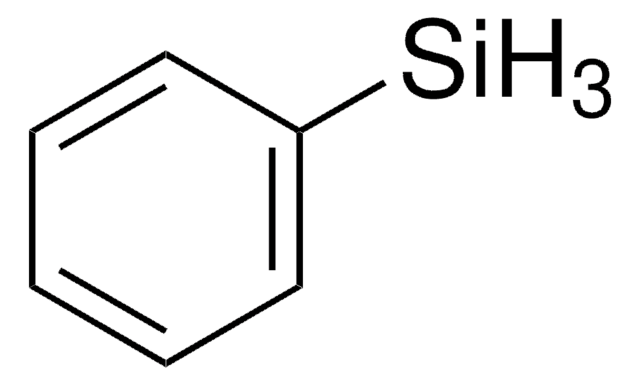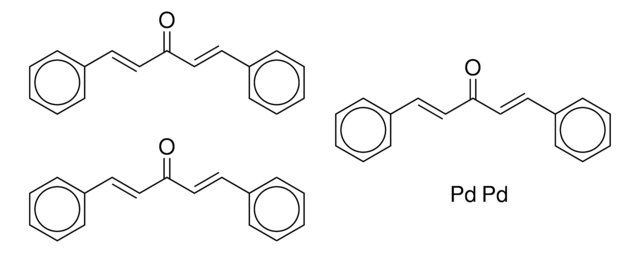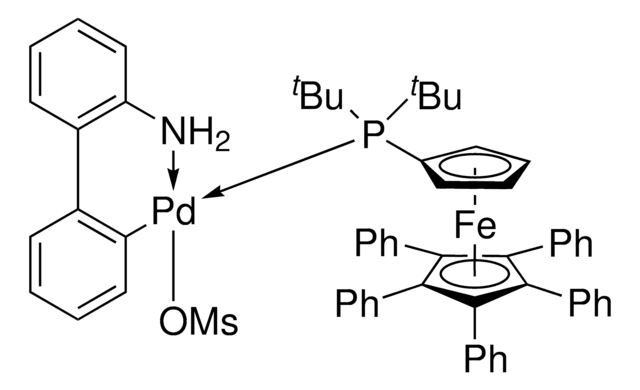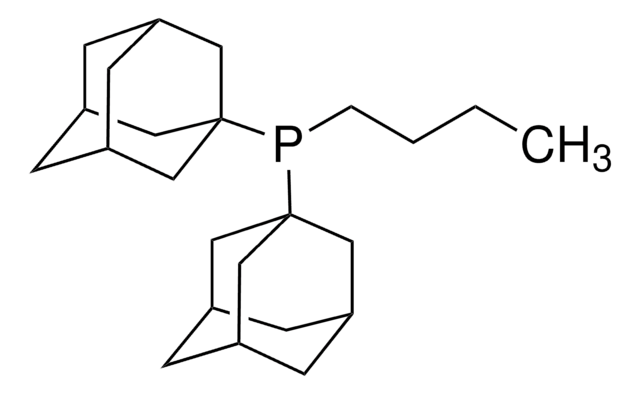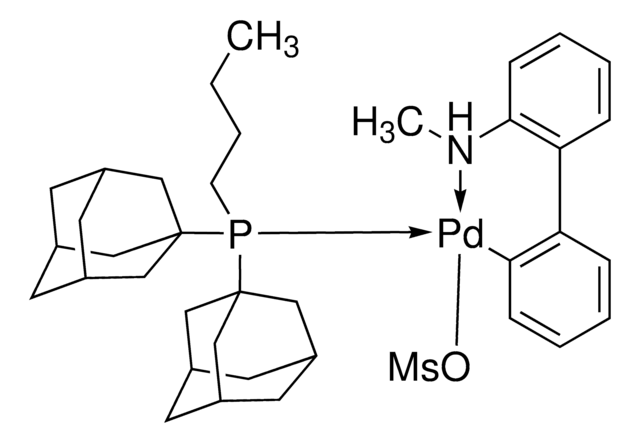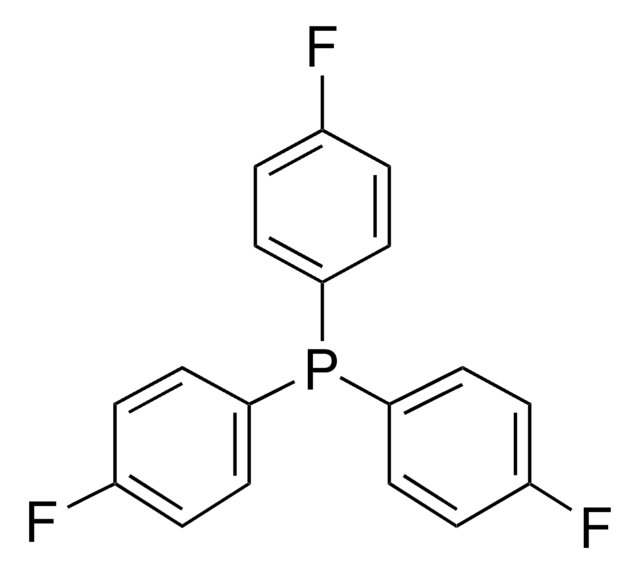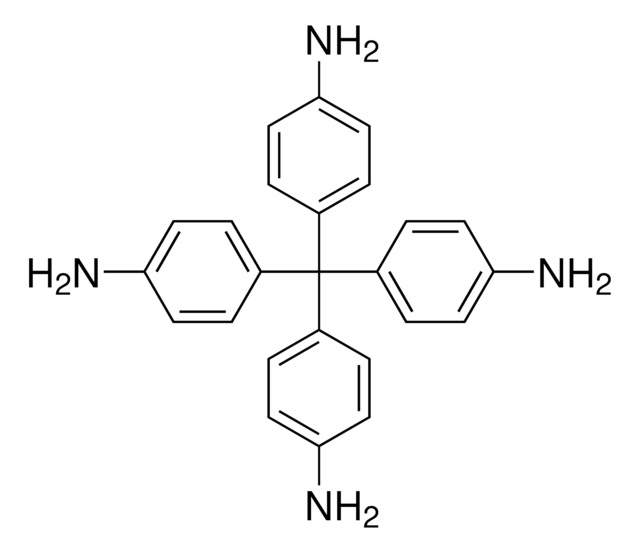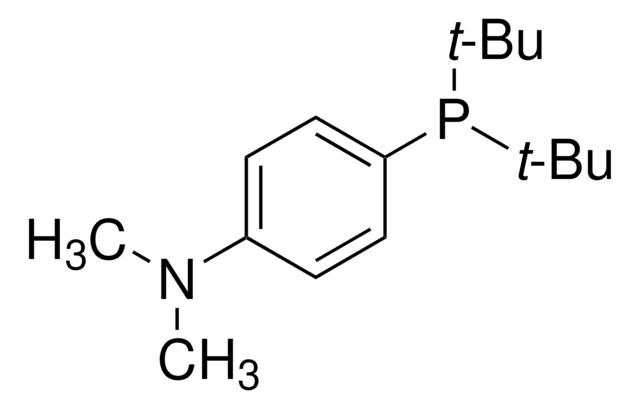695459
1,3,5,7-Tetramethyl-6-phenyl-2,4,8-trioxa-6-phosphaadamantane
97%
Synonym(s):
1,3,5,7-Tetramethyl-8-phenyl-2,4,6-trioxa-8-phosphatricyclo[3.3.1.13,7]decane, meCgPPh
About This Item
Recommended Products
Quality Level
assay
97%
form
solid
reaction suitability
reaction type: Buchwald-Hartwig Cross Coupling Reaction
reaction type: Heck Reaction
reaction type: Hiyama Coupling
reaction type: Negishi Coupling
reaction type: Sonogashira Coupling
reaction type: Stille Coupling
reaction type: Suzuki-Miyaura Coupling
reagent type: ligand
reaction type: Cross Couplings
mp
106-111 °C
functional group
phosphine
SMILES string
CC12CC3(C)OC(C)(CC(C)(O1)P3c4ccccc4)O2
InChI
1S/C16H21O3P/c1-13-10-15(3)19-14(2,17-13)11-16(4,18-13)20(15)12-8-6-5-7-9-12/h5-9H,10-11H2,1-4H3
InChI key
AVVSJWUWBATQBX-UHFFFAOYSA-N
Application
- As a ligand to synthesize complexes for hydroformylation catalysis.
- To catalyze the synthesis of dibenzo[b,f][1,4]oxazepin-11(10H)-ones and 3-methyl-3,4-dihydrocoumarins by intramolecular cyclocarbonylation.
Storage Class
11 - Combustible Solids
wgk_germany
WGK 3
flash_point_f
Not applicable
flash_point_c
Not applicable
Choose from one of the most recent versions:
Already Own This Product?
Find documentation for the products that you have recently purchased in the Document Library.
Customers Also Viewed
Articles
The use of amines and phosphines in nucleophilic catalysis is well precedented; however, arguably one of the severe limitations with respect to exploiting the more nucleophilic, yet less basic, phosphine in this regard is its air sensitivity.
Our team of scientists has experience in all areas of research including Life Science, Material Science, Chemical Synthesis, Chromatography, Analytical and many others.
Contact Technical Service![[(1,3,5,7-Tetramethyl-6-phenyl-2,4,6-trioxa-6-phosphaadamantane)-2-(2′-amino-1,1′-biphenyl)]palladium(II) methanesulfonate](/deepweb/assets/sigmaaldrich/product/structures/324/001/3ffb4bd2-9c6b-451c-80ee-a217f03ca932/640/3ffb4bd2-9c6b-451c-80ee-a217f03ca932.png)
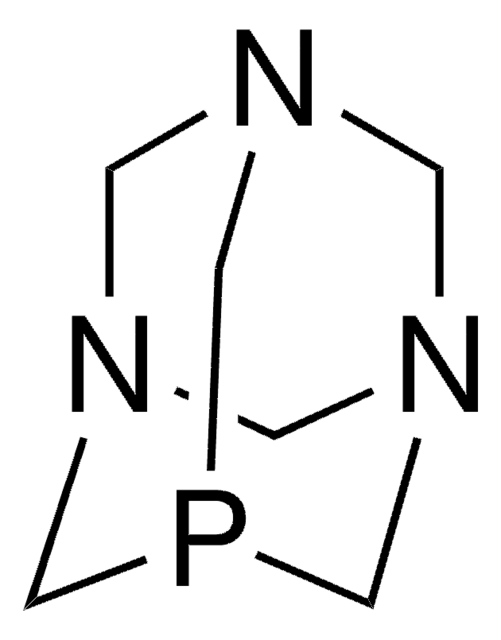
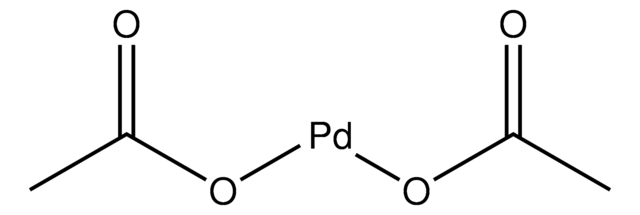

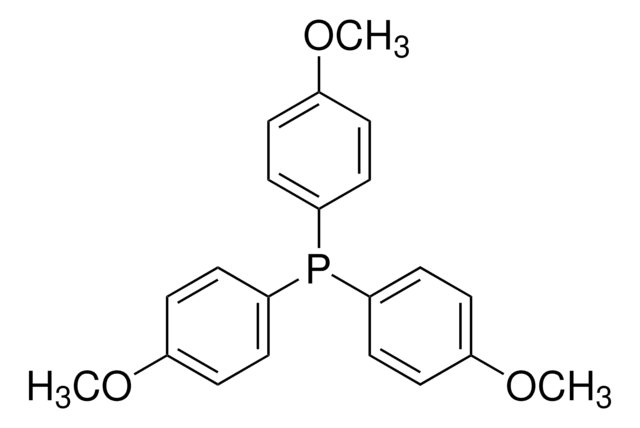
![[1,1′-Bis(diphenylphosphino)ferrocene]dichloropalladium(II)](/deepweb/assets/sigmaaldrich/product/structures/130/734/8846aa26-1858-458a-998d-8c306c13bf0f/640/8846aa26-1858-458a-998d-8c306c13bf0f.png)
